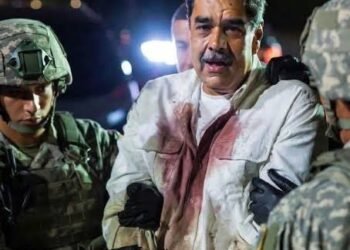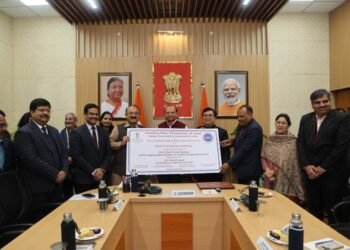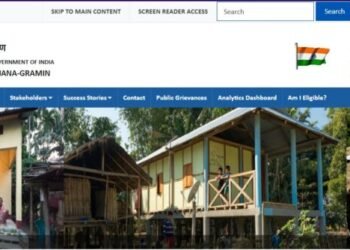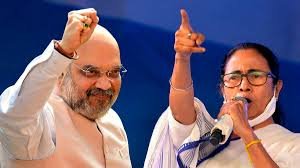Declaring NH-02 “open” is optics. Meiteis avoid the hills, Kuki-Zos fear Imphal. The divide remains unhealed, even deepened. Without justice for the likes of Flo, Olivia, and David Thiek —brutally killed with no arrests—peace in Manipur will remain an illusion built on broken promises.
BY Navin Upadhyay
September 6, 2025: The recent extension of the Suspension of Operations (SoO) pact between the Ministry of Home Affairs (MHA) and Kuki-Zo armed groups has been projected as a breakthrough for peace in Manipur. Yet a closer look shows the agreement changes little on the ground and is unlikely to usher in genuine reconciliation.
The deal rests on two pillars: first, the extension of the ceasefire with the Kuki National Organisation (KNO) and United People’s Front (UPF), representing nearly two dozen armed groups; and second, a formal declaration of “free movement” along National Highway-02 (Imphal–Dimapur).
Modi’s Visit and the Mirage of Peace
Ahead of Prime Minister Narendra Modi’s likely visit to Manipur on September 13, the pact is being touted as a “major breakthrough.” Sections of the mainstream media have even suggested that the state has already exorcised the spectre of violence— and soon its hills and valley will once once more resonate with songs of peace and love.
The reality is far less comforting. The divides that triggered the bloodshed of May 3, 2023 has not only remained unhealed, but deepened. Manipur today sits atop a powder keg, primed to erupt at the slightest provocation.
NH-02: Optics Over Substance
The agreement’s clause on “free movement” along NH-02 between Imphal and Dimapur has been framed as a symbolic bridge between valley and hills. But in truth, the highway was already open for commercial traffic and public transport.
The only group absent from this corridor were Meiteis, who avoid venturing into the hills without security escorts, while Kuki-Zo residents still fear entering Imphal even to catch flights. The declaration, then, adds little beyond optics.
READ: Tribal Voices Oppose Cultural Dance Show to Welcome PM Modi in Manipur Hills
Skeptics recall March 8 this year, when tribal groups blocked NH-02 despite its being open. Why? Because on that day, the valley-based Federation of Civil Society Organisations (FOCS) had called for a march into the hills. Hill communities perceived this as a provocation, leading to violent clashes with security forces and one death. The blockade was not against “free movement” itself but against perceived incursions into tribal areas.
SoO Extension: Stipends, Not Stability
The SoO extension is equally hollow. Hundreds of armed village volunteers and militant cadres still wield weapons in both valley and hills, ready to retaliate at the slightest spark. In fact, valley-based insurgents remain outside the ceasefire entirely, continuing to thrive on extortion and smuggling.
Here is All You Want to Know About MHA–Kuki-Zo Agreement https://t.co/SrfWmOfSCk #SoOAgreement #KukiZo #ManipurCrisis #PeaceTalks #MHAUpdate #NortheastIndia
— POWER CORRIDORS (@power_corridors) September 5, 2025
Even among SoO signatories, doubts persist over whether cadres will truly deposit their arms. For many, the deal’s immediate value lies in the guaranteed ₹6,500 monthly stipend. For their umbrella groups, the UPF and KNO, it offers a chance to push the Centre for talks on their political demand for Union Territory status.
The Missing Ingredient: Accountability
For any genuine attempt at peace, the state must show courage. That means arresting those responsible for the May 3, 2023 violence, including the leadership of groups like Arambai Tenggol and the political patrons of militant outfits. It means action against policemen accused of looting the state armoury. Only by addressing accountability can the state begin to rebuild trust.
Even then, the divide is so deep that true coexistence may remain elusive. At best, relative calm could create space for dialogue with tribal groups to understand their aspirations and political justifications. And for that too, justice must first be served. More than two years after deadly ethnic violence erupted in Manipur, some of the most horrific cases remain unresolved, with not a single arrest made. Take the examples of:
Flo and Olivia: They were young Kuki women in their early twenties. They worked at a car wash workshop in Imphal (reported as Gama Car Wash) and lived in a rented room. On May 4, amidst the ethnic violence, a mob allegedly abducted, gang-raped, and brutally murdered them. Their bodies were later discovered inside the room, with blood and hair strewn across the floor—a disturbing testament to how savage the attack was
Their brutal killing sparked widespread horror and grief. Large funeral processions were held in their home district of Kangpokpi, where thousands attended. Yet, despite multiple FIRs filed—one a zero FIR filed by the younger victim’s mother at Saikul Police Station—the police made no arrests. As of months later, their bodies remain unreturned to their families, still held at the Jawaharlal Nehru Institute of Medical Sciences (JNIMS) mortuary
David Thiek: He was abducted at Langa village close to Churachandpur-Imphal border —his body was found in a burned and mutilated state, with his head gruesomely pinned to a fence. This act of horror shattered many who believed leadership would shield them from violence. Yet, like Flo and Olivia, none of the perpetrators have been brought to justice. No arrests, no investigation updates, no closure for the loss of a young life dedicated to public service.
READ: Heroin Haul: Security Forces Nab Four in Imphal Valley
These stories are not mere statistics in the long list of the dead. They are human tragedies that continue to fester, wounds that never close because the state refuses to stitch them shut. Without justice for Flo, Olivia, David, and countless others, any talk of peace will remain hollow—a promise written on quicksand.
Headlines vs. Ground Reality
To suggest that the MHA–Kuki-Zo agreement will deliver lasting peace is misleading at best. The fault lines between communities have hardened into an almost unbridgeable chasm. Without accountability—of militia leaders, political patrons, and rogue security personnel—the cycle of mistrust will remain unbroken.
For now, the agreement serves its purpose in generating headlines ahead of Modi’s visit. But it does little to alter Manipur’s dangerous reality. Peace cannot be manufactured for optics alone.













